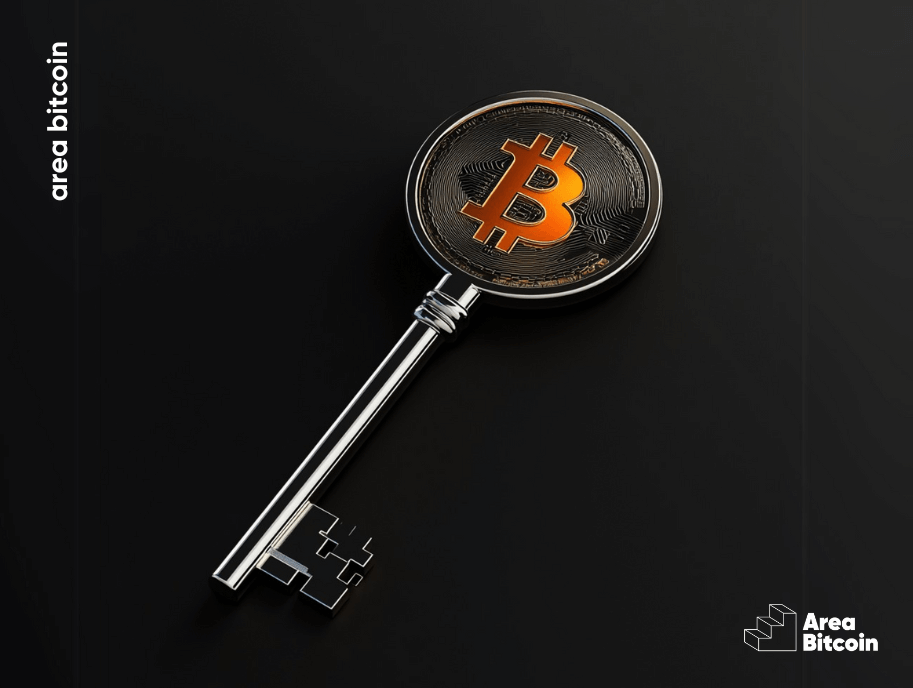Since Bitcoin’s emergence in 2008, it has been associated with concepts such as financial freedom, privacy, security, and decentralization. With Bitcoin, an alternative financial system was born, enabling anyone, anywhere in the world, to transact without relying on banks or intermediaries.
These characteristics have led many to believe that Bitcoin is completely anonymous, especially since using it does not require providing documents, names, or any form of personal identification.
However, this perception is more complex than it seems.
While Bitcoin is indeed a powerful tool for enhancing financial freedom, its design does not guarantee full anonymity, as all transactions on the network are recorded on a public blockchain.
Thus, privacy in Bitcoin usage depends more on good practices and technical knowledge than on automatic guarantees.
Well, if you’ve ever wondered whether Bitcoin is truly anonymous or how to protect your transactions from prying eyes, this article is for you!
Table of contents
How does privacy work in Bitcoin?
To understand privacy in Bitcoin, we first need to grasp how data is stored on the network.
Basically, Bitcoin’s data consists of transactions carried out by users, stored on a distributed and decentralized network: the blockchain.
But, what is the blockchain?
Bitcoin’s blockchain is a transparent and publicly accessible ledger, meaning anyone can view its data and verify the information it contains. Each transaction includes various details, such as the sender’s address, the recipient’s address, the amount sent, the type of wallet used, and the address type.
However, this information doesn’t include sensitive user data, such as names, phone numbers, addresses, or identification numbers. Instead, users are represented by their public addresses or public keys, which are alphanumeric sequences.
For this reason, we can say that Bitcoin is not entirely anonymous, but rather pseudonymous.
What’s the difference between anonymous and pseudonymous?
Anonymity means there is no traceable link between a person’s real identity and their actions. Pseudonymity, on the other hand, involves the use of an identifier, such as a Bitcoin address, that does not directly reveal a person’s identity but can be tracked and, with enough analysis, potentially connected to an individual.
For this reason, Bitcoin is not entirely anonymous but rather pseudonymous, as transactions are linked to public addresses that, with proper analysis, could lead to identifying their users.
Bitcoin is pseudonymous, not anonymous!
Bitcoin’s design makes it a transparent network. As mentioned earlier, anyone can access and verify blockchain data. Therefore, every transaction is recorded in a block, and all blocks are interconnected, from the genesis block to the most recent one.
This means that someone with the right knowledge and tools can analyze a transaction’s history tied to an address and, in some cases, even link it to an individual or organization.
This is possible through on-chain analysis, which involves examining data directly from the blockchain. Understanding this characteristic is essential for those looking to use Bitcoin with greater privacy and security.
So, if you don’t need to provide personal data to use the Bitcoin network, how can a transaction be linked to you?
Although Bitcoin addresses aren’t associated with real names, there are some ways to discover who they belong to, such as:
- Exchanges and KYC: When you buy Bitcoin through a centralized exchange (such as Binance, Coinbase, among others), you’re often required to go through a Know Your Customer (KYC) process, where you provide information like your ID and proof of residence. If you hold Bitcoin purchased on centralized platforms, your address can be traced back to your identity.
- Improper Address Use: Many users repeatedly use the same Bitcoin address, making it easier to identify them. Ideally, you should generate a new address for each transaction. Wallets like Sparrow and hardware wallets automatically create new addresses for every transaction, enhancing user privacy.
- Blockchain Analysis: Certain companies and tools specialize in tracking Bitcoin transactions through on-chain analysis. Platforms like Chainalysis are used by governments, security agencies, and financial institutions to map blockchain activities.
As mentioned earlier, every Bitcoin transaction is public and can be examined by agencies or blockchain analysis specialists. When combined with human errors or additional data, such as IP addresses, messages, or connections to centralized exchanges, this information can ultimately reveal a user’s identity.
Can Bitcoin transactions be tracked?
Yes, in some cases, Bitcoin transactions can be tracked because they are publicly recorded on the blockchain and can be analyzed using specialized tools.
There have been numerous instances where Bitcoin transactions were traced, especially when they involved coins from centralized exchanges or users who repeatedly used the same address.
One of the most well-known tracking cases was Silk Road, a dark web marketplace that facilitated the purchase of various items using Bitcoin.
Although Silk Road operated for years, transactions on the network were eventually uncovered by FBI investigators. By using data analysis tools and tracking the addresses involved, authorities identified Ross Ulbricht, the creator of Silk Road, leading to his arrest in 2013.
Another significant example was the ransomware attack on Colonial Pipeline, a U.S. pipeline company, in 2021.
In this case, hackers demanded a ransom in Bitcoin, but the FBI later managed to trace and recover part of the funds.
Additionally, some Bitcoin addresses are widely known, such as those belonging to Satoshi Nakamoto, Bitcoin’s creator, and Hal Finney, one of the first adopters and contributors to the technology.
It is possible to track bitcoins that have passed through these famous addresses or are linked to historically significant moments in the network, such as the genesis block (the first mined block), the first halving (block reward reduction), and other notable events.
These examples illustrate that while Bitcoin does not require personal information for transactions, it still leaves traces.
How to increase privacy when using Bitcoin?
Here are some suggestions to enhance your privacy when using the Bitcoin network:
- Avoid KYC Platforms: If privacy is important to you, purchase Bitcoin through non-KYC platforms or P2P transactions that don’t require identity.
- Always Use New Addresses: Reusing addresses is one of the biggest privacy mistakes. Always generate a new address for each transaction.
- Secondary Networks: Using second-layer networks like Lightning Network and Liquid can improve privacy, as transactions occur off-chain (outside the main blockchain).
- Mixers: Bitcoin mixers shuffle your coins with those of other users, making it harder to trace the origin of funds.
- Tor or VPNs: Access the Bitcoin network through Tor or VPNs to hide your IP address, adding an extra layer of anonymity.
While no single method guarantees 100% anonymity, combining multiple techniques can significantly enhance your privacy on the Bitcoin network.
Final thoughts
As we’ve explored in this article, Bitcoin is not truly anonymous but pseudonymous. While you can use it without providing personal information or undergoing KYC (Know Your Customer) verification, all transactions on the network are publicly recorded on the blockchain.
This transparency is a core feature of Bitcoin’s design, but it also means that transactions and addresses can be tracked by those with the right tools.
However, for those seeking greater privacy when using Bitcoin, it’s essential to adopt good practices, such as avoiding address reuse and utilizing wallets with privacy-oriented features. Achieving complete privacy, though, requires not only using these tools but also discipline and knowledge to avoid mistakes that could compromise security.
If total anonymity is a must for you, be prepared to combine multiple strategies, explore different privacy solutions, and make an extra effort to safeguard your information.
I hope this article has helped clarify whether Bitcoin is anonymous and provided useful insights on how to use the network more privately.
See you in the next article, and OPT OUT!
Share on your social networks:

One of the leading Bitcoin educators in Brazil and the founder of Area Bitcoin, one of the largest Bitcoin schools in the world. She has participated in Bitcoin and Lightning developer seminars by Chaincode (NY) and is a regular speaker at Bitcoin conferences around the world, including Adopting Bitcoin, Satsconf, Bitcoin Atlantis, Surfin Bitcoin, and more.
Did you like this article? Consider buying us a cup of coffee so that we can keep writing new content! ☕







